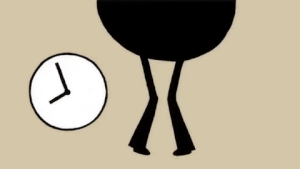Humans should urinate at least 4 to 6 times a day, but sometimes due to the pressure of life and work, we have to hold back.
The question is: Why can we hold in urine? How long can we endure? And how harmful is this habit?

The key lies in the mechanism of the bladder , an oval-shaped sac located in the pelvis. Surrounding the bladder are several other organs that form the urinary system. Two kidneys, two ureters, two urinary sphincters, and one ureter.

The yellow liquid that comes down from the kidneys is called urine. The kidneys make urine from a mixture of water and body waste products, which is pumped through two pipes down to a hollow organ called the bladder. The wall of this organ is made up of tissues called bladder muscles when the bladder is full of muscles that relax causing the bladder to inflate like a balloon.

When the bladder is distended, the internal urethral sphincter opens automatically, urine flows into the urinary tract and stops at the external urethral sphincter. This mechanism is like a switch, if you want to hold your urine, you keep the sphincter closed. When you want to urinate, you can actively “open the flood gate”.

But how do you know when your bladder is full to urinate? Inside the bladder muscle layers are millions of pressure receptors that are activated when the bladder fills with urine. They send signals along nerves to the spinal cord. The feedback signal is sent back to the bladder causing the bladder muscle to contract slightly and increase the pressure causing you to feel like your urine is filling up. At the same time, the internal urethral sphincter opens, this is called the voiding reflex.

The brain can counter this reflex if you don’t want to urinate by sending another signal to contract the external urethral muscle.

With about 150-200ml of urine, the bladder muscle wall relaxes just enough for you to notice urine. Around 400 to 500ml, the pressure rises to an uncomfortable level. The bladder can continue to stretch but to a limit.

Above 1000ml, the bladder may rupture. Most people will lose control of their bladder before it bursts, but in rare cases when there is no need to urinate, the bladder can rupture painfully and require surgery to fix it.

When you are ready to flood, the signal from the brain to the external urethral sphincter is interrupted and it relaxes, allowing urine to be released. The external urethral sphincter is one of the muscles of the pelvic floor that helps support the urinary tract and bladder neck.

You’re lucky to have these pelvic floor muscles because when you cough, sneeze, laugh or dance, pressure is put on your entire system that can cause your bladder to leak. Pelvic floor muscles keep the area sealed until you’re ready to urinate.

Although this mechanism helps us not to collapse at the gates of heaven, overusing them such as holding urine for too long, then urinating too quickly or urinating in the wrong position can weaken these supporting muscles over time. time. It can cause bladder pain or urinary incontinence . So if you care about long-term health, holding your urine is not a good habit .

